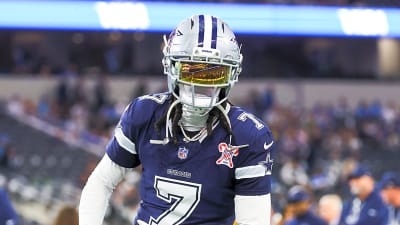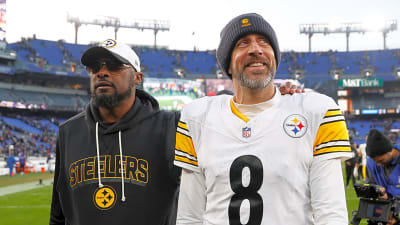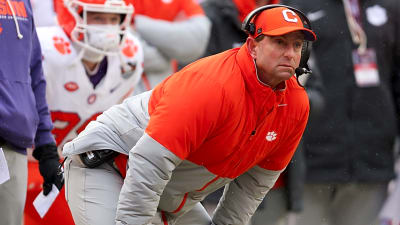
Mr. Fix-it: How three-time MVP Mike Trout plans to change his game
Los Angeles Angels outfielder Mike Trout knows what has gone wrong. He’s chasing too much, striking out more and walking less — far from the disciplined hitter who once terrorized pitchers. Now, he’s determined to fix it.
“I noticed a few things that I was doing,” the 14-year veteran told MLB.com’s Rhett Bollinger for a story published Wednesday. “I was able to work on things [over the offseason] to get back to my old self. For me, looking at the last few years, I used to never chase. Used to walk a lot. "
At the plate, Trout aims to "just be myself" and stop "being defensive." His decline in plate discipline isn’t just perception — the numbers back it. In 2018, Trout led the AL with a 20.1% walk rate, ranking in the 100th percentile for walk percentage, per Baseball Savant.
Since then, those figures have steadily dropped while his chase and whiff rates have surged. His strikeout percentage, once as low as 17.8% in 2017, now ranks in the bottom third of MLB.
This is a stark departure from the version of Trout that dominated the sport. Early in his career, he routinely refined his approach, cutting his ground-ball rate from 44.7% as a rookie to just 25.4% by 2019, the year he won his third MVP.
Each season, he raised the floor of his already historic potential, making subtle adjustments that made him nearly impossible to plan against.
Since 2019, though, injuries have derailed that steady evolution. Trout has lost roughly two full season’s worth of games to calf, back, hamate and knee injuries.
Last year, he was beginning to rediscover his swing before suffering a torn meniscus in his left knee April 29. He returned for a rehab assignment in July but reinjured the knee in his first game back, requiring another surgery.
Fully recovered, Trout returned to Cactus League in February and launched his first home run in nearly a year Wednesday. But the bigger test will be whether he can regain his patience at the plate and cut down on the swing decisions that have worsened with time.
FanGraphs’ Bill Petti found that as hitters age, they tend to swing more— both in and out of the zone — and make less contact. That decline accelerates after age 29. Trout will turn 34 on Aug. 7.
His adjustments once made him an outlier. Now, they’re a necessity.
Trout's body won’t allow him to overpower the game like he once did, so he must compensate.
He still showed flashes of elite production last season, clubbing 10 home runs in just 29 games with a 1.1 bWAR before his injury. If he stops chasing and finds his old approach, the power will follow.
The baseball world has been robbed of Trout’s greatness for too long. If he can refine his approach one more time, it might just bring him back to the player he used to be.
More must-reads:
- Top prospect on every National League team
- The 24 pitchers who have thrown an MLB perfect game
- The 'MLB on-base percentage leaders since 2000' quiz
Breaking News
Trending News
Customize Your Newsletter
 +
+
Get the latest news and rumors, customized to your favorite sports and teams. Emailed daily. Always free!








